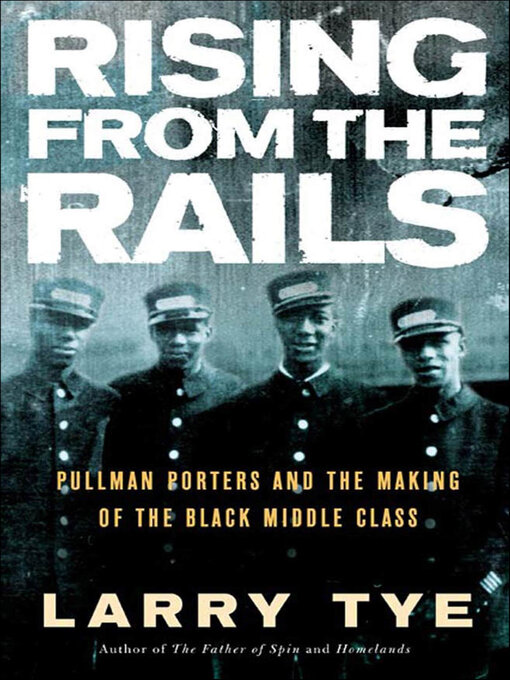George Pullman began recruiting Southern blacks as porters in his luxurious new sleeping cars just as the Civil War was ending, and the offer of a steady job and the chance to see the world proved irresistible. Scores of former slaves signed up to serve as maid and waiter, concierge, nanny, and occasionally doctor and undertaker to cars full of well-heeled white passengers, making the Pullman Company the largest employer of African Americans in the country by the early 1900s.
Drawing on extensive interviews with dozens of porters and their descendants, Larry Tye reconstructs the world of the Pullman porter and the vital cultural, political, and economic roles he played as forerunner of the modern black middle class. Rising from the Rails is a riveting look at this missing chapter of American history.
Praise for Rising from the Rails
Named a Recommended Book by The Boston Globe, San Francisco Chronicle, and The Seattle Times
"A valuable window into a long-underreported dimension of African American history." —Newsday
"A highly readable business history at one end and labor history at the other. . . . Tye shows what whites never saw—the grinding, often humiliating, realities of the job and the rippling effect of steady employment in the upward mobility of the porters' children and grandchildren." —Publishers Weekly
-
Creators
-
Publisher
-
Release date
June 4, 2024 -
Formats
-
Kindle Book
-
OverDrive Read
- ISBN: 9781466818750
-
EPUB ebook
- ISBN: 9781466818750
- File size: 2016 KB
-
-
Languages
- English
-
Reviews
-
Publisher's Weekly
May 3, 2004
What have the poet Claude McKay, the filmmaker Oscar Micheaux, the explorer Matthew Henson, the musician "Big Bill" Broonzy and college president Benjamin Mays in common? They all worked for the Pullman Company, which until 1969 owned the sleeper cars for and ran the sleeper service on the U.S. railroads, and was at one time "the largest employer of Negroes in America and probably the world." Blacks, preferably those with "jet-black skin," supplied "the social separation... vital for porters to safely interact with white passengers in such close quarters." Although Tye makes the general case for the centrality of "The Pullman Porter" in the making of the black middle class (and in much of American cultural life), the particular porter becomes supportive detail for a highly readable business history at one end and labor history at the other. Former Boston
Globe
journalist Tye (The Father of Spin
) interviewed as many surviving porters as he could find as well as their children, and immersed himself in autobiographies, oral histories, biographies, newspapers, company records—wherever the porter might be glimpsed, including fiction and film. Entertaining detail abounds: Bogart was a solid tipper; Seabiscuit traveled in a "specially modified eighty-foot car cushioned with the finest straw." So does informing detail: the long hours, the dire working conditions, the low pay, the lively idiom, the burdensome rules. While "The Pullman porter... was the only black man many ever saw," Tye shows what whites never saw—the grinding, often humiliating, realities of the job and the rippling effect of steady employment in the upward mobility of the porters' children and grandchildren. 40 b&w photos not seen by PW
. Agent, Jill Kneerim of Kneerim & Williams.
-
Formats
- Kindle Book
- OverDrive Read
- EPUB ebook
subjects
Languages
- English
Loading
Why is availability limited?
×Availability can change throughout the month based on the library's budget. You can still place a hold on the title, and your hold will be automatically filled as soon as the title is available again.
The Kindle Book format for this title is not supported on:
×Read-along ebook
×The OverDrive Read format of this ebook has professional narration that plays while you read in your browser. Learn more here.

